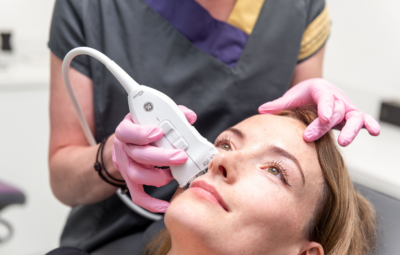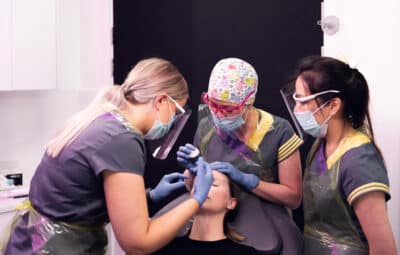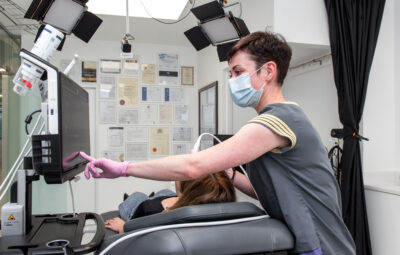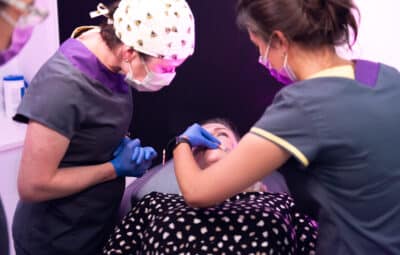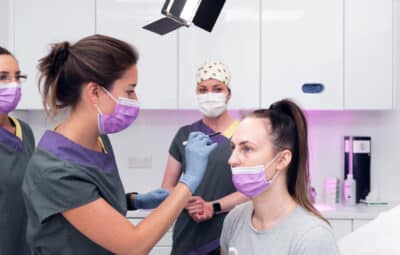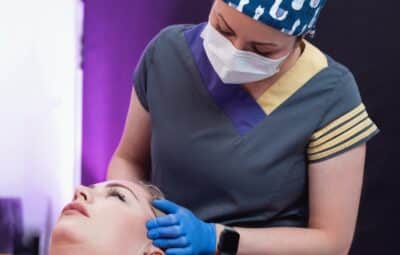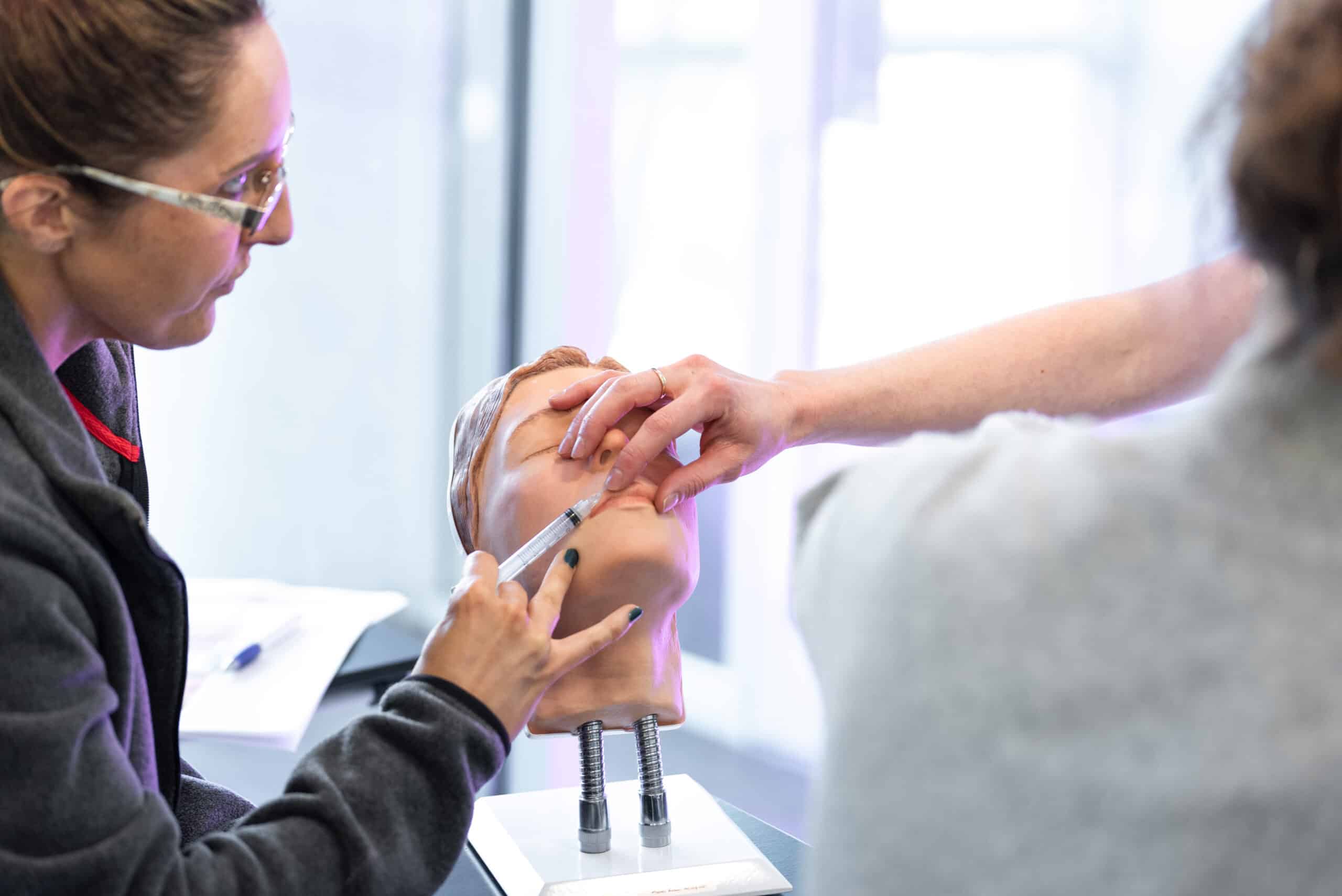
What Causes the Thinning of Lips? Insights from an Expert
15 August 2024
In this post:
- Discover how skin ageing, muscle activity, bone and fat changes, and dental issues cause thinning lips with age.
- Learn how to tell when lips get thinner with age, from a flattened Cupid’s Bow to deepening nasolabial folds.
- Why hyaluronic acid-based lip fillers are the best treatment for restoring lost volume and shape to ageing lips.
- Explore alternate treatment options to lip filler including skin boosters and lip flips.
Ask anyone to name a sign of ageing, and chances are they’ll say wrinkles or fine lines. These are two of the most commonly recognised signs of ageing because they are the most evident. We see fine lines and wrinkles on ourselves or others everyday. But one of the most significant aspects of the ageing process is often overlooked: the thinning of lips
Not a day goes by at our clinic Smileworks Liverpool where we don’t see a mature patient complaining of ageing lips. Their lips don’t look like they used to when they were younger, and they’re desperate for a fix, whether that be lip filler or a Botox lip flip.
Loss of lip volume can be one of the first signs of ageing, appearing as early as the late teenage years. For many, this change is alarming. Full, plump lips are associated with youth and vitality. When you lose this volume, the lips appear thinner and more aged. No patient wants this.
In this article, join industry expert Dr MJ Rowland-Warmann as she delves into the cause of lip thinning and which treatments can help your patients maintain plump, youthful lips.
What causes lips to get thinner with age?
Lip thinning is a complex process influenced by a multitude of factors. These include skin ageing, dynamic muscular activity, volumetric changes, and dentition changes. Let’s break down each of these and what they mean for our lips.
Skin Ageing
Like the rest of our face, the skin on our lips undergoes significant changes as we age. These changes are driven by both intrinsic and extrinsic factors.
Intrinsic factors are those that are genetically predetermined and unfortunately unavoidable. An example of this is the natural decrease in collagen production. Collagen is a protein that provides structure and volume to our skin. After our 20s, we lose about 1% of collagen each year. This loss leads to thinner, less elastic skin. This is easily the biggest cause of thinning lips.
Even if you have a strict skincare routine and healthy habits, there is nothing you can do to stop the loss of collagen.
On the other hand, extrinsic factors are related to environment and lifestyle. The biggest culprit is sun exposure. Ultraviolet (UV) rays accelerate collagen degradation, leading to volume loss and the formation of fine lines.
Another extrinsic factor is smoking or vaping. The chemicals in tobacco and nicotine can damage the skin, starving the lips of blood flow and oxygen. Then there’s also the issue of the repeated pucking motion. This movement contributes to the development of wrinkles around the lips.
Other external factors such as stress, poor diet, pollution, and dehydration also play a role in accelerating skin ageing.
Dynamic Muscular Activity
From talking to eating and expressing emotions, our lips are constantly in motion. Since the muscles around the mouth are in perpetual use, you can expect lines and wrinkles to form around the mouth. These lines are called perioral lines but are colloquially referred to as “smoker’s lines”, even in non-smokers.
The orbicularis oris muscle, which controls the opening and closing of the mouth, is responsible for these lines. Over time, these dynamic lines can become static. Even when the mouth is at rest, the lines are still visible, contributing to the appearance of an ageing lip.
Volumetric Changes
As we age, the deeper structures of our face undergo significant changes. The maxilla (upper jaw) and mandible (lower jaw) both experience bone resorption. This leads to a reduction in support for the overlying tissues. This bone loss is what causes lips to lose their youthful projection and contributes to the deepening folds around the mouth, such as the nasolabial folds and marionette lines. If you choose to instead treat the nasolabial folds instead of the lips, tread carefully. Nasolabial fold filler gone wrong is one of the most common aesthetic complications.
In addition to bone loss, the fat pads that provide volume to the face and lips also change. These fat pads can undergo atrophy or redistribution, leading to a loss of volume in the lips and a more hollow appearance in the surrounding areas. The combination of bone resorption and fat pad changes causes the entire mouth area to shift. This results in a longer upper lip and a decrease in tooth visibility when smiling.
Dentition Changes
Most people aren’t aware of how much the health of your teeth impacts lower facial ageing, especially your lips. Tooth loss, wear, or ill-fitting dentures can all affect the support structure of the lips.
When teeth are lost or worn down, the alveolar ridge–the bone that supports the teeth–undergoes resorption, leading to a decrease in lip projection and a more sunken appearance of the lower face. This can also cause the lips to turn inward, further diminishing their fullness and contributing to a thinner, aged look.
How to Identify an Ageing Lip
Recognising the signs of an ageing lip can help you address the issue in your patients before it becomes too pronounced. Some of the key features of an ageing lip include:
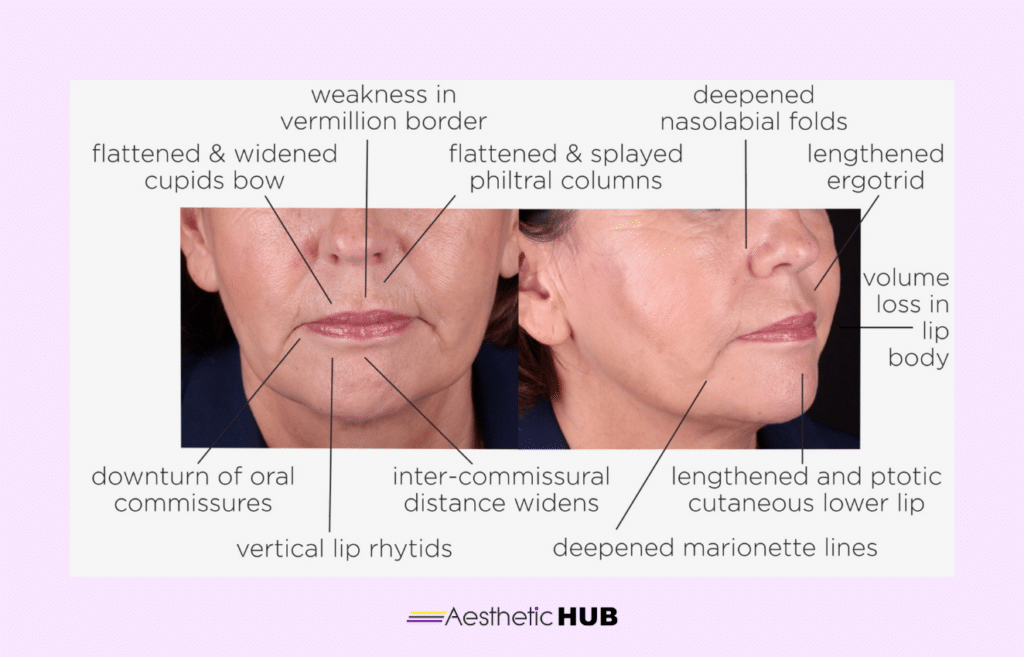
Flattened and Widened Cupid’s Bow – The natural shape and fullness of the cupid’s bow diminishes with age, leading to a less defined upper lip.
Lengthened Upper Lip – With age, the skin between the nose and upper lip, known as the cutaneous upper lip, elongates. This reduces the amount of tooth shown and gives the mouth a downturned appearance.
Flattening of the Philtral Columns – The vertical ridges that extend from the nose to the top of the upper lip become less pronounced.
Wider Mouth – The distance between the corners of the mouth may increase, giving the appearance of a wider, more sagging mouth.
Downturned Oral Commissures – The corners of the mouth may begin to turn downward, creating a “sad” expression.
Volume Loss in the Lip Body – The lips lose their natural projection and shape, resulting in an inverted thinner appearance.
Weak Vermillion Border – The border between the lip and the surrounding skin becomes less defined, leading to a blurred appearance.
Vertical Lip Rhytids – Known as “smoker’s lines,” these vertical lines are caused by a loss of underlying fat and exacerbated by external factors like smoking.
Deepened Nasolabial and Marionette Lines – The folds around the mouth become more pronounced due to a loss of support from the midface and lower face.
Increased Dryness – Ageing skin loses its ability to retain moisture, leading to drier, more chapped lips.
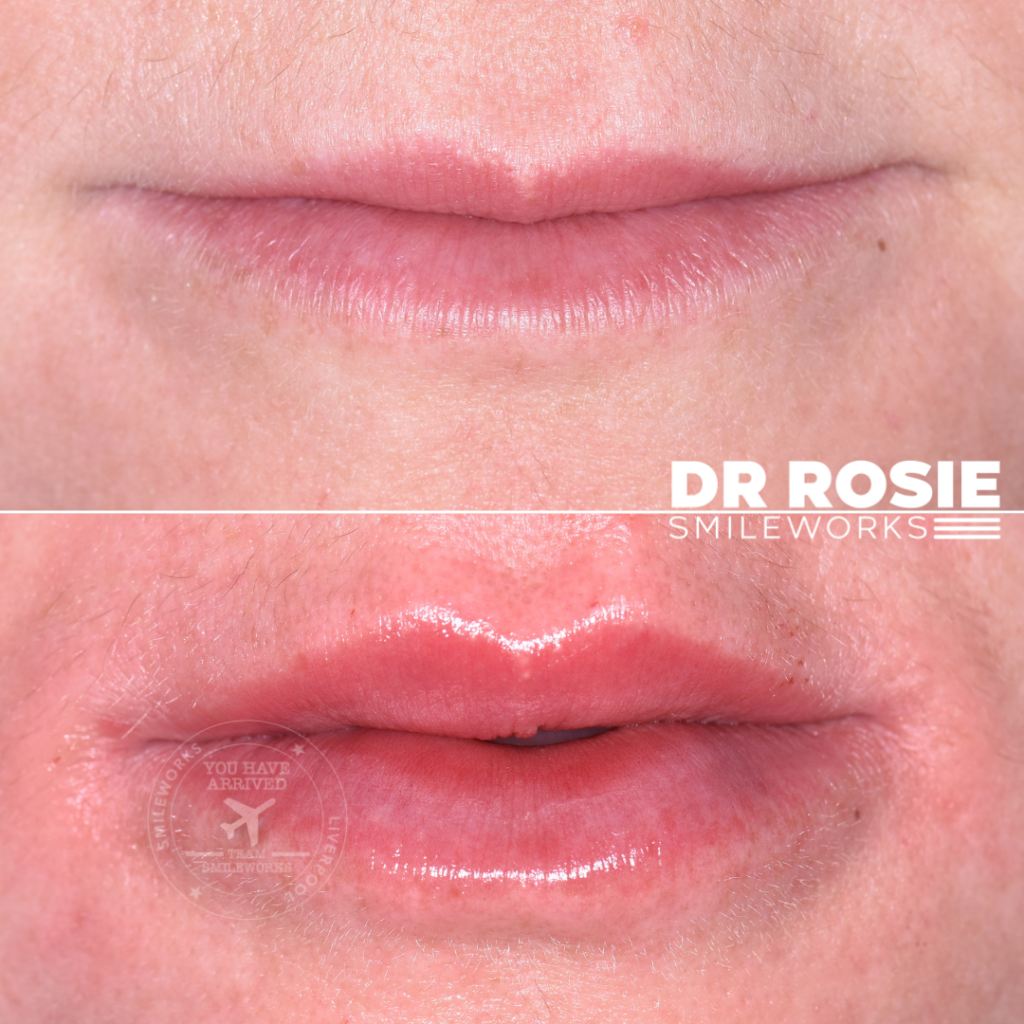
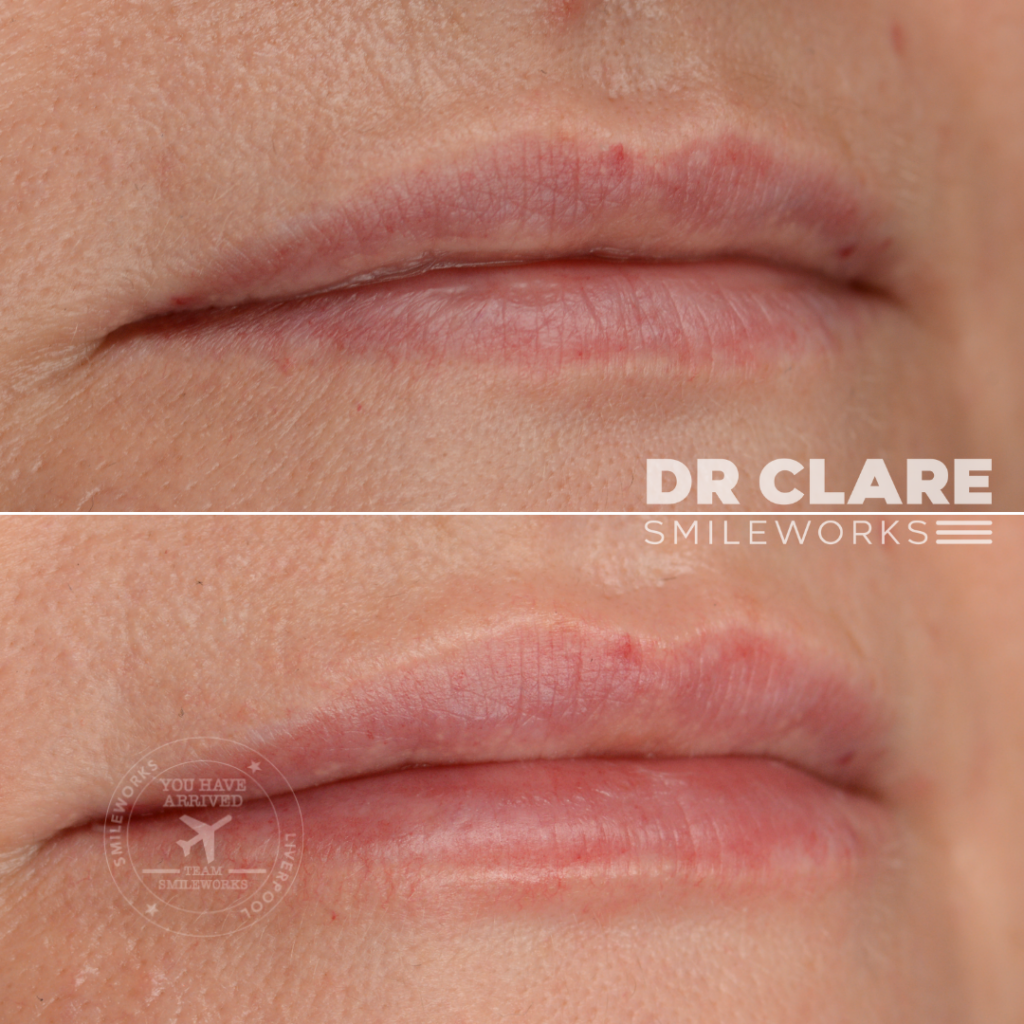
Lip Fillers for Thin Lips
Treating lips in older patients can be a challenge. The lips are a central part of the face, and the whole face must be assessed with the lips to create age-appropriate results. Hyaluronic acid dermal fillers can work wonders in restoring an ageing lip.
Whether it is to improve, shape, structure, or simply add hydration, lip filler will leave the patient happier and with fuller, more youthful lips.
When administered by a skilled practitioner, fillers can provide a subtle yet significant improvement without looking unnatural. Well-executed filler treatment can rejuvenate your patient and give them the confidence boost they’ve been looking for.
However, it’s important to remember that lip filler treatment should always be approached with caution, especially in older patients.
Overdone or poorly placed filler can create an exaggerated appearance that detracts from the lips’ natural beauty. Mature patients will often need more than just lip filler, so a comprehensive facial assessment should be conducted to ensure the lip filler complements the patient’s overall features.
With lip filler, there is a lot of technique and skill needed to create great results, especially for mature patients. Things like whether you should do a lip filler massage or other specific aftercare instructions are not always obvious to beginner injectors. We recommend the HUB’s comprehensive lip filler course to learn everything you need to know.
Other Treatment Options
While lip filler is the quickest and most guaranteed way to revive thinning or ageing lips, some patients wish to pursue other treatment options. Not all of these will produce the same results of lip filler, but could still provide slight improvements to the lips.
Skin Boosters
It’s not just for the skin! Skin boosters can also be injected in the lips to provide hydration and skin quality in the lips. These injectables offer a subtle enhancement without adding significant volume. If you’re interested in learning how to inject skin boosters, see our Sculptra & Skin Booster Masterclass.
Botox Lip Flip
This procedure involves injecting Botox into the muscles around the lips to create a subtle upward “flip”, making the lips appear slightly fuller. However, this treatment isn’t for all patients. It’s typically only needed in patients with a hyperactive muscle around their mouth.
SPF Lip Balm
Nothing damages our skin or lips like the sun does. To protect your lips, we recommend applying an SPF lip balm everyday. While lip balm won’t reverse the lip’s aged appearance, it can help prevent further collagen breakdown and maintain lip volume.
Healthy Lifestyle Choices
Avoiding smoking, staying hydrated, and maintaining a balanced diet rich in nutrients can slow down the ageing process and preserve the fullness of your lips. Like SPF lip balm, this won’t fix the damage that’s already been done, but it can prevent more from happening.
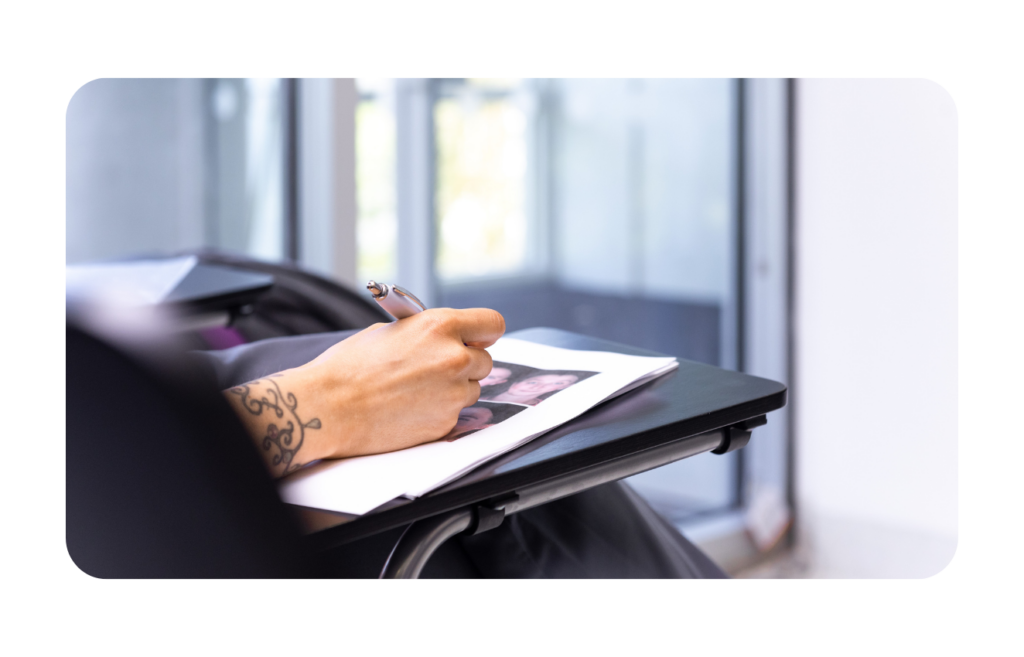
Learn From The Best In The Industry!
We’re proud to introduce the Smileworks Aesthetic Training HUB – an esteemed aesthetic training centre based in the UK. We pride ourselves on our wide range of online and hands-on courses tailored for every skill level.
If you’re a beginner practitioner looking for more in-depth training in lip filler, our online filler course can teach you all about lip filler. Our lead instructor and co-founder Dr Rowland-Warmann will guide you through how to create gorgeous results for your patient.
Maybe you’re still taking your first steps into the world of both Botox and lip filler, or you’re an advanced injector aiming to master facial ultrasound techniques. We also have one-to-one mentoring sessions available for those looking personalised training. Regardless of your experience, we have the expertise and courses to suit your needs.
It’s time to embrace the prospering world of aesthetic medicine. The HUB provides you with all the right training and guidance you need to succeed. Take control of your professional journey and step into a future filled with endless potential and opportunities.
Join us at the HUB. Let’s shape the future of aesthetic medicine together and ensure safe, effective, and transformative results for every patient.
Want to try out our courses before committing? Take advantage of our free trial for a taste of what learning at the HUB is like.
Related blog posts:
